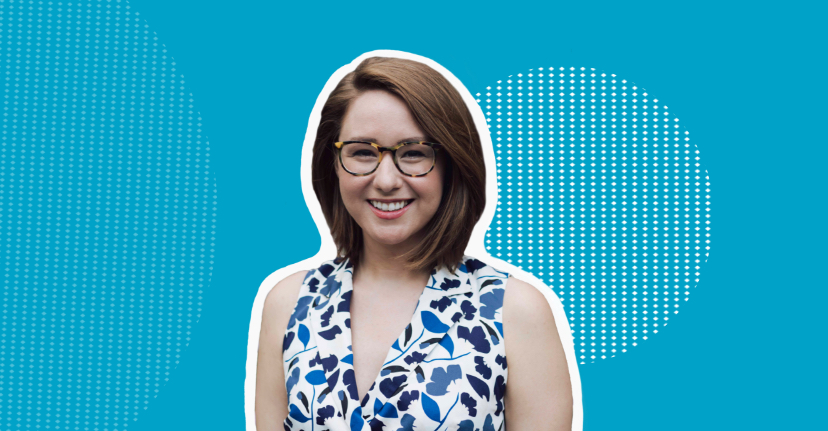The Unspoken Secret of Being A Small Business Owner
When I look back at what I wish I’d known before starting a small business—something business-owners get asked quite often—one thread stands out: the “mistakes” made along the way offered fortuitous lessons in and of themselves. In a business’ infancy, those chance accidents and unexpected grooves can—actually—end up defining your business’ growth and evolution later on. Simply put: learning to take chances is part of the ineffable secret sauce that can help fledgling businesses to succeed.
To speak more bluntly, if a business owner doesn’t do all of the stupid, risky things you’re liable to do at the beginning (precisely because you don’t have the insider knowledge which can bring cautiousness), you’re less likely to succeed in my view. Why? Because entrepreneurship at some level —particularly at a business’ outset— requires a kind of focused, cockeyed confidence that knowledge and experience don’t always replicate.
The hiring decisions and partnerships you make at the outset, the directions in which you take your brand, and the stylings of your company culture—all of these become bricks in the foundation of a business that is later stable and steeled for success.
When SoFi asked me to share some of the most important lessons gleaned from my entrepreneurship, I wanted to share something that might benefit small business owners—while not undermining that zany optimism that fuels entrepreneurs. The most important lesson in entrepreneurship that I wished I’d known is this: the narrower your focus, the greater your chance of business success.
My company, The Financial Diet (aka TFD), was somewhat narrow by nature at its start—being a personal finance website aimed at the fairly niche audience of young adult women. Still, in many ways, we initially tried to be everything for everyone.
We adopted most of the popular social media platforms and tried to make a mark on them (Facebook and Twitter, years later, yield almost nothing for us). We sought to speak broadly to both college women and new mothers (our sweet spot ended up being somewhere in the middle). My editorial team and I at first thought that we all needed to become financial authorities ourselves, when more value was actually found in leveraging others’ expertise through the content we knew we could create. Even in our narrow field, we tried to do too much. And, in the process, we lost valuable time and energy.
Here’s perhaps one of the most important lessons for young entrepreneurs: the optimism and energy you have for your product or project are better served when they’re paired with a narrow target.
If you’re a cosmetics influencer, starting out you generally don’t want to be competing against all of the well-funded women’s magazines and YouTube megastars of the world. So, who can you speak to? Maybe people with a particular condition or constraint? Maybe people who are seeking out a specific sub-genre of cosmetics? Maybe people whose needs are currently being underserved in the space? (As someone who has long suffered with chronic skin issues, I can say that the landscape of skincare experts who were born with perfect skin is longing to be disrupted).
Find what you do well. Find who you can do it for. And then, narrow both of those down… considerably. While the actual act of running a business requires both mental flexibility and jack-of-all-trades adaptiveness, one key thing you can do when launching a small business is reduce the number of people and organizations against whom you must compete.
Put another way: reduce the size of the ocean in which you are swimming. You’re better suited to a pond at first. Or, maybe even a puddle. When you outgrow that terrain —and have the resources to sustainably expand— then you might consider diving into a bigger swimming space.
This focused mentality has bled into everything we do at TFD. We hire or add an expense only when we must. We refuse to jump on the latest trending platforms or topics. We do something only when we know that we can do it well (and fund it comfortably). In practice, this has meant that we grow much more slowly (and may never be as glamorous) as some of our competitors.
But, in a year that has decimated media and digital ad revenue, we at TFD have only grown. And, after COVID, I predict there’s likely no storm we can’t weather with this steady approach. Narrowness can, at first, feel like a constraint. The entrepreneurial person is often attracted to more and better—wanting to try their hand at every passing opportunity.
The Takeaway
In a digital-first world where anyone can strike out on their own business venture, it’s a much better idea to be very important to a few people than just another face in the crowd to many.
Third-Party Brand Mentions: No brands, products, or companies mentioned are affiliated with SoFi, nor do they endorse or sponsor this article. Third-party trademarks referenced herein are property of their respective owners.
Guest Participation: The individuals interviewed for this article were not compensated for their participation. Their advice is educational in nature, is not individualized, and may not be applicable to your unique situation. It is not intended to serve as the primary or sole basis for your financial decisions.
Non affiliation: SoFi isn’t affiliated with any of the companies highlighted in this article.
SOCO20110



